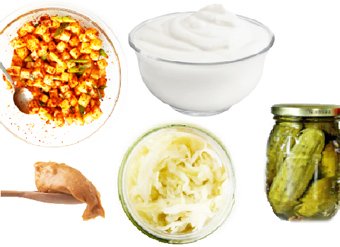Probiotics are live microorganisms, mainly beneficial bacteria, that help maintain a healthy balance in the gut. They support digestion, boost the immune system, and aid in nutrient absorption. Common sources include yogurt, kefir, and other fermented foods.

Élie Metchnikoff, a Russian scientist born in 1845 and considered the father of probiotic research, first proposed that consuming beneficial microbes could promote health and longevity. His early work laid the foundation for today’s probiotic science.
Common examples of probiotic bacteria present in fermented foods and probiotic supplements include:
✅ Lactobacillus acidophilus – found in yogurt and fermented milk, helps with lactose digestion and gut health.
✅ Bifidobacterium bifidum – supports immune function and reduces harmful bacteria in the intestines.
✅ Lactobacillus rhamnosus – known for preventing diarrhea and supporting digestive health.
✅ Bifidobacterium longum – aids in breaking down carbohydrates and fighting harmful microbes.
✅ Lactobacillus casei – improves digestion and may reduce inflammation in the gut.
Probiotics are commonly found in fermented foods like yogurt, kefir, sauerkraut, pickles, kimchi, and miso. They can also be taken as supplements, especially when recovering from illness or after antibiotic use.
What role do probiotics play in the diet?
Probiotics play a crucial role in supporting overall health by maintaining a healthy gut environment.
✅ These beneficial bacteria aid in breaking down complex or hard-to-digest foods, making nutrients more accessible to the body.
✅ They enhance the absorption of essential nutrients and contribute to the natural production of B vitamins, which are vital for energy, metabolism, and brain function.
✅ Probiotics also help maintain a balanced intestinal flora, keeping harmful bacteria in check and promoting a healthy digestive tract. This balance is essential for reducing issues like bloating, constipation, and diarrhea.
✅ A well-functioning gut supported by probiotics also plays a key role in immune health. Nearly 70% of the immune system resides in the gut, and probiotics help regulate immune responses, reducing inflammation and protecting against infections.
Keynote
Ongoing research shows that probiotics may help with conditions like irritable bowel syndrome (IBS), allergies, anxiety, and depression. This is because the gut and brain are closely connected. Adding probiotics to your diet is a natural way to support digestion, boost immunity, and improve overall health.

